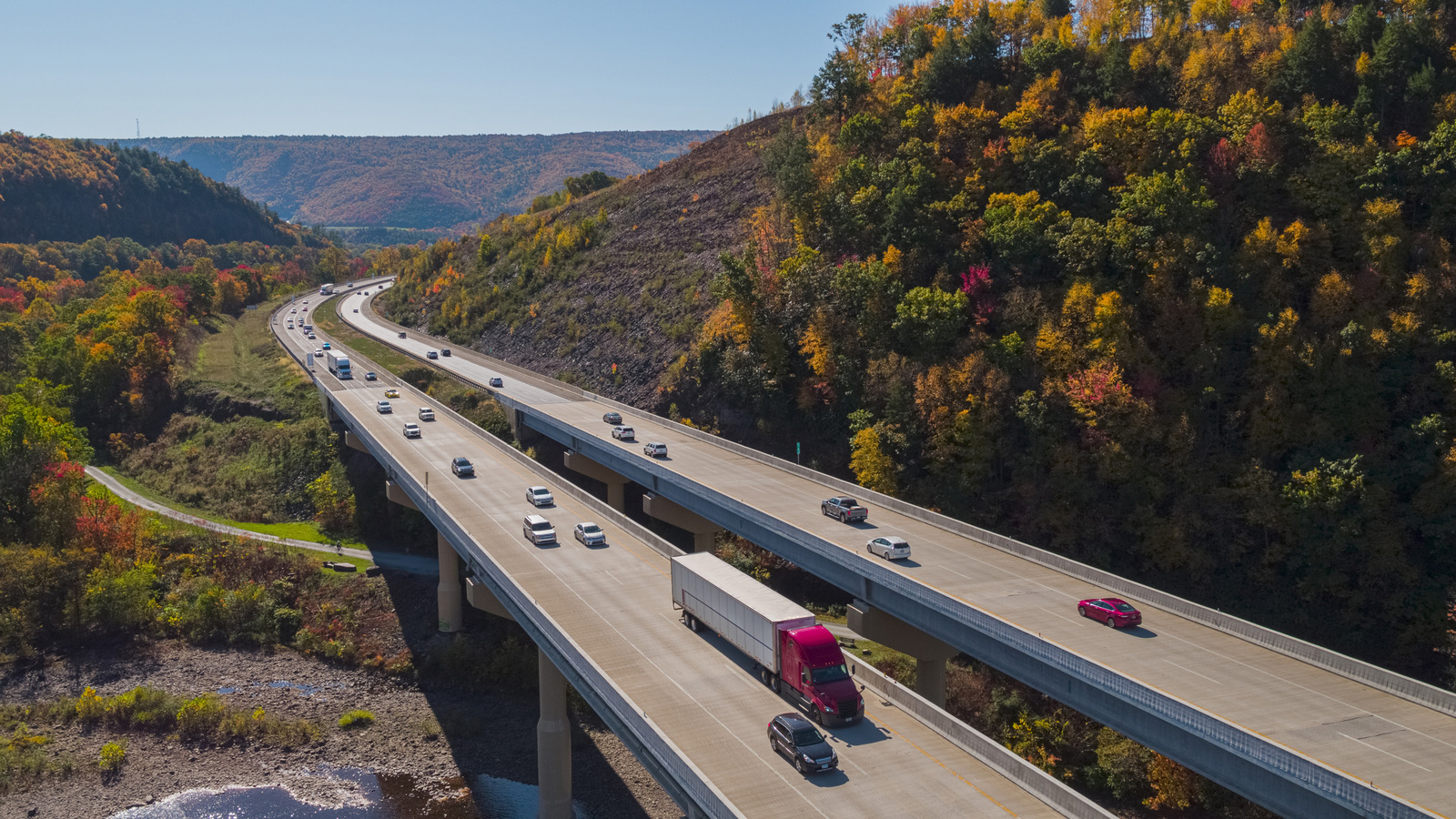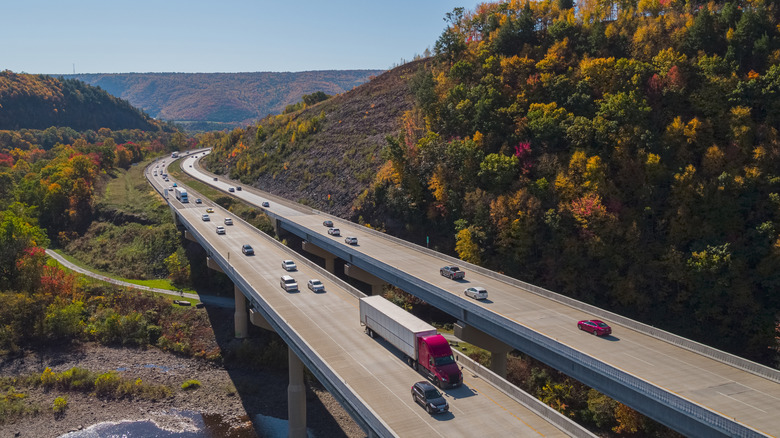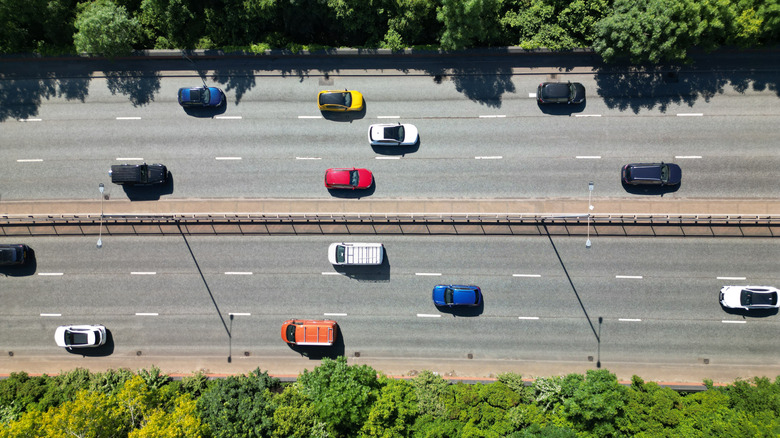Basic cruise control has been around for ages, but these days, a lot of new cars come with adaptive cruise control, which adjusts your driving speed to hopefully keep you a safe distance from the cars in front of you. It may not always be perfect, but it’s still an incredibly convenient feature, especially on long road trips. We aren’t talking fancy cars, either. If you buy a new base model Toyota Corolla, adaptive cruise control is a standard feature and has been for years. One question a lot of people have, though, is how using adaptive cruise control affects gas mileage.
Does it help you get better fuel economy? Does it hurt it? Ask around at your local bar or Cars & Coffee, and you’ll probably find plenty of Car Guys (TM) with strong opinions based on anecdotes, but thankfully science isn’t completely illegal in the U.S. just yet, so we can still get an evidence-based answer from an actual academic study published in the journal Nature Communications that came out late last year. Unfortunately, if you’re looking for a strong, definitive answer that says adaptive cruise control is either incredible or terrible for gas mileage, you won’t find that here.
As with most things in life, the conclusion is basically, “It’s complicated.” So the good news is, using adaptive cruise control is unlikely to destroy your fuel economy, but on the flip side, it also won’t turn your 30-mpg car into a 40-mpg car.
The bad news
As you can imagine, there are a lot of complicating factors that impact how adaptive cruise control will change your gas mileage. If you tend to accelerate quickly, for example, the more gradual acceleration you get from ACC could theoretically improve your gas mileage by slowing you down and keeping the transmission in a more efficient gear. But on average, it appears that ACC use does slightly increase fuel consumption:
Finally, our analysis revealed a significant (t = 3.793) treatment effect of engaging adaptive cruise control on fuel consumption. After controlling for the other variables in the model, we found that when the adaptive cruise control was engaged, fuel consumption increased by 0.26 L/100 km compared to when it was not engaged (t = 3.793). This result indicates that at the fleet level, the use of adaptive cruise control may lead to a slight increase in FC. All else being equal, ACC engagement has a negative impact on fuel consumption (on average, i.e., across all vehicles, drivers, speeds, etc.), with an FC increase of 0.26 L/100 km. We observed that the average FC across the fleet was 14.7 L/100 km; by tying back this number we can conclude from this result that ACC may present about 2% FC penalty on the fleet.
So that’s it then, right? ACC is a waste of gas, and anyone who uses it is a big, dumb idiot? Not necessarily.
The good news
That 0.26 liters per 100 km figure quoted in the study works out to slightly more than half of one mile per gallon. As a result, you’re probably unlikely to notice the difference in your car getting 29.5 mpg instead of 30 mpg. Additionally, since air resistance increases significantly the faster you drive, you’re more likely to see more noticeable improvements by simply slowing down. But the study also found the increase in fuel consumption is more strongly correlated with the “cruise control” part than the “adaptive” part.
It’s been established for a while that using cruise control isn’t quite as efficient as not using it, and on a highway, you’re more likely to simply drive at the speed you set, whether your cruise control is adaptive or not. When another car is in front of you, though, fuel consumption actually went down slightly:
In all situations where no preceding vehicle is present during the segment, engaging ACC appears to increase FC. Conversely, when a vehicle is present, the engagement of ACC can provide some benefits, with the exception of braking situations… The negative interaction term in all situations (except braking) suggests that ACC is advantageous when engaged in the presence of a preceding vehicle.
It’s also important to remember that there’s another reason to use adaptive cruise control: safety. No ACC system can guarantee you won’t crash, but it can definitely help. And if you’re trying to save money by avoiding cruise control, there’s always the chance you may not notice the car in front of you slam on its brakes. If you do end up rear-ending the vehicle in front of you, the cost of that crash will probably be far more than any money you may have saved on gas. Ultimately, though, whether or not it’s worth the risk is up to you, the driver.





